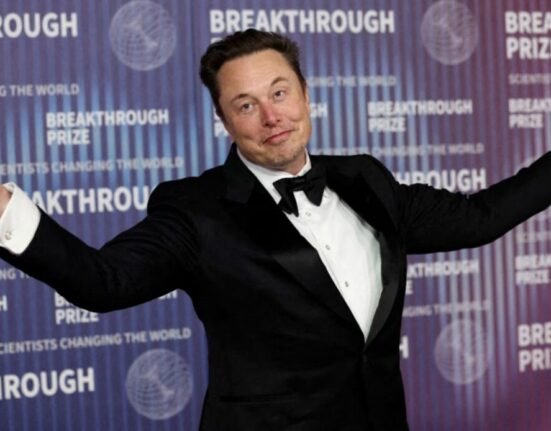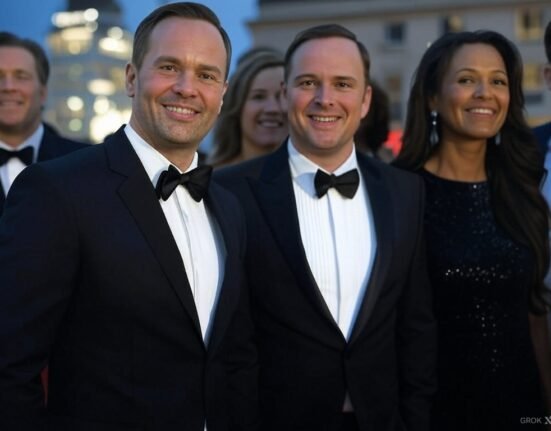Mitsubishi Motors has long established itself as a reputable player in the automotive industry, and as we navigate through 2023, the company continues to innovate with its latest concepts, notably the 2023 Mitsubishi Delica and the Mitsubishi D-X Concept. These vehicles represent a forward-thinking approach poised to redefine the experience of mobility for a diverse range of drivers.
The 2023 Mitsubishi Delica is designed to embody versatility and adaptability, catering to the evolving needs of modern consumers. With an emphasis on spacious interiors and multi-purpose functionality, it is tailored for both urban commuting and adventurous exploration. Equally significant is the inclusion of advanced safety features and user-friendly technology, which are vital components of Mitsubishi’s commitment to enhancing everyday driving experiences. This concept not only targets current market demands but also anticipates future preferences.
In conjunction with the Delica, the Mitsubishi D-X Concept stands at the forefront of the company’s exploration into sustainable mobility solutions. This innovative model showcases a blend of eco-friendly technologies and contemporary design, highlighting Mitsubishi’s determination to reduce the environmental impact of vehicle production and operation. By optimizing fuel efficiency and deploying advanced electric powertrains, the D-X Concept aims to attract environmentally-conscious consumers while still delivering robust performance capabilities.
Overall, these concepts reflect Mitsubishi’s vision for the future of the automotive industry, where technology, sustainability, and advanced features converge to create vehicles that not only meet but exceed consumer expectations. As we delve deeper into the intricacies of these new models, the commitment of Mitsubishi to delivering cutting-edge solutions becomes increasingly evident, promising an exciting future for enthusiasts and potential buyers alike.
The 2023 Mitsubishi Delica: A Closer Look
The 2023 Mitsubishi Delica marks a significant evolution in the brand’s approach to versatile family vehicles and adventure-ready transport. This model offers a combination of modern aesthetics and function, appealing to a broad range of consumers, from busy families to outdoor enthusiasts. One of the defining characteristics of the 2023 Delica is its exterior design, which balances rugged durability with sleek lines. The elevated stance and bold front-end styling not only enhance its visual appeal but also improve driving dynamics in various conditions.
Stepping inside, the interior of the 2023 Delica reflects thoughtful design aimed at maximizing space and comfort. With seating for up to seven passengers, the cabin is designed to accommodate family logistics while providing ample cargo space. The innovative seating configuration allows for adaptability, making it ideal for both daily commutes and long road trips. The use of high-quality materials and advanced sound insulation materials contributes to a refined atmosphere, ensuring that all occupants enjoy a pleasant ride.
Technologically, the 2023 Mitsubishi Delica does not fall short. Equipped with a cutting-edge infotainment system, it features a user-friendly touchscreen interface that integrates with smart devices. Safety is prioritized with a suite of advanced driver-assistance systems, making it a formidable option for families concerned about security on the road. Moreover, the inclusion of all-wheel drive ensures that adventurers can confidently explore off-the-beaten-path locations without sacrificing comfort or safety.
Overall, the 2023 Mitsubishi Delica stands apart from traditional models by offering a blend of spaciousness, versatility, and modern technology. This makes it a strong contender for anyone seeking a vehicle that can adapt to both everyday life and weekend escapades alike.
The Mitsubishi D-X Concept: Innovations in the Pipeline
The Mitsubishi D-X Concept represents a pioneering step in the evolutionary trajectory of Mitsubishi’s automotive design and technology. Introduced to the public as a precursor to the brand’s future production models, this concept car showcases a harmonious blend of innovative design aesthetics and advanced technology. Key features of the D-X Concept include its sleek, aerodynamic silhouette, which not only enhances the visual appeal but significantly improves fuel efficiency and performance.
At the heart of the D-X comes a robust powertrain that integrates hybrid technology, highlighting Mitsubishi’s commitment to sustainable mobility solutions. This hybrid system is designed to optimize fuel consumption while reducing emissions, aligning with global trends toward greener vehicles. The concept is anticipated to deliver impressive performance specifications, offering both power and responsiveness that appeal to driving enthusiasts while catering to environmentally conscious consumers.
In addition to its performance and environmental considerations, the D-X Concept incorporates advanced technological innovations aimed at enhancing user experience and safety. Features such as autonomous driving capabilities, advanced driver-assistance systems, and next-gen connectivity options are engineered to create a seamless integration between driver, vehicle, and the surrounding environment. Such innovations embody Mitsubishi’s forward-thinking approach, ensuring that technological advancements serve to elevate daily driving experiences.
The comprehensive design philosophy behind the D-X also indicates how Mitsubishi plans to develop future models that prioritize aerodynamics and efficiency. The strategic use of lightweight materials, combined with a carefully sculpted exterior, not only aids in fuel efficiency but also ensures durability. As the automotive industry evolves, the D-X Concept serves as a clear signal of Mitsubishi’s dedication to innovation, presenting a compelling glimpse into the direction of future models while maintaining a focus on sustainability and high-performance capabilities.
The Upcoming Mitsubishi Pajero Sport: Features & Expectations
The Mitsubishi Pajero Sport has long been a staple in the SUV segment, known for its versatility, ruggedness, and overall performance. As the automotive market continues to evolve, anticipation for the new Pajero Sport model has been building, with several expected changes that may enhance its appeal. In terms of design, the upcoming model is expected to embrace a more modern aesthetic, featuring sharper lines and an updated front fascia that aligns with Mitsubishi’s latest design language. This fresh look should resonate well with consumers seeking a contemporary vehicle.
Under the hood, it is anticipated that the new Pajero Sport will offer a range of engine variations. Options could include a more efficient turbocharged diesel engine that delivers robustness while enhancing fuel efficiency. Additionally, there may be improvements in the transmission system, perhaps with the inclusion of a new automatic transmission that offers smoother shifting and better performance. Some experts suggest that the advancements in engine technology will contribute to improved towing capacity and off-road capabilities, making the Pajero Sport suitable for both urban and adventurous outings.
In terms of market competition, the Pajero Sport will face established rivals such as the Toyota Fortuner and Ford Everest. However, it is expected that Mitsubishi will leverage its strong history in rugged SUVs to offer a compelling alternative. With improved technology features such as an advanced infotainment system and enhanced safety measures, the upcoming model could attract a wider audience. Experts believe that consumer reception will largely depend on the balance of performance, features, and pricing. Overall, the 2023 Mitsubishi Pajero Sport holds promise, and many are eager to witness its official unveiling.
Where’s the ASX? A Comparison with Other Models
The Mitsubishi ASX has been a familiar name in the compact SUV segment, but it notably appears to be absent from Mitsubishi’s upcoming lineup for 2023. This absence raises pertinent questions regarding its future in comparison to other models such as the Delica and Pajero Sport. The ASX has enjoyed significant popularity due to its efficient fuel consumption, compact design, and versatile interior space. However, as consumer preferences evolve, so too does Mitsubishi’s strategic focus on newer models that align more closely with market trends.
In recent years, the automotive industry has witnessed a marked shift towards larger and more technologically advanced vehicles, particularly SUVs that cater to a growing demand for versatility and off-road capability. This has prompted Mitsubishi to allocate resources towards the development of models like the 2023 Delica, which emphasizes spaciousness and comfort, and the Pajero Sport, which is designed for those seeking adventure without compromising on urban functionality. The ASX, while still a competent option, may not meet the new consumer criteria that prioritize these characteristics.
Additionally, insights from industry analysts suggest Mitsubishi’s decision to deprioritize the ASX may be a strategic move to streamline its offerings in a crowded market. With increasing competition from various brands, the focus shifts towards models that differ significantly from the ASX’s core traits. Hence, developing vehicles that resonate with current consumer sentiment could help Mitsubishi maintain its competitive edge. As consumer preferences towards large, sophisticated vehicles continue to rise, Mitsubishi’s focus on the Delica and Pajero Sport may reflect a necessary adjustment to ensure the company aligns with future market demands.
Market Trends: The State of Electric Vehicles
The electric vehicle (EV) market has experienced significant growth over recent years, evolving into a substantial segment within the automotive industry. Recent sales data from VFACTS reveals a notable increase in the uptake of electric vehicles across Australia. In the past year alone, there has been a remarkable surge in the number of EVs sold, indicating heightened consumer interest and a shifting landscape toward sustainable transportation options. According to the Federal Chamber of Automotive Industries (FCAI), the expansion of electric vehicles is driven not only by consumer demand but also by governmental policies promoting eco-friendly transport solutions.
This upward trend in the electric vehicle market can be attributed to several factors. Firstly, advancements in battery technology have led to improvements in range, charging time, and overall vehicle performance, making EVs more appealing to a broader audience. Secondly, increasing awareness of climate change and the need for reduced carbon emissions have encouraged consumers to consider electric models as viable alternatives to traditional combustion engine vehicles. As consumers become more informed and engaged, automakers are responding by expanding their electric offerings, leading to innovations that cater specifically to market demand.
A key player in this evolving landscape is Mitsubishi, which is positioning itself to leverage these trends with its upcoming electric models. The anticipated 2023 Mitsubishi Delica is among those set to make a significant impact in the Australian EV market. As automakers introduce more electric variants and updates to existing models, Mitsubishi aims to carve out a niche by emphasizing its commitment to electrification alongside traditional vehicle offerings. The future looks promising as consumer preferences continue to align with sustainable vehicle choices, shaping a more environmentally conscious automotive market.
Ford’s Electric Plans: Insights and Implications
In recent news, Ford Australia made a significant decision to pause its plans for an electric version of the Ford Puma. This development has raised questions about the larger implications for the electric vehicle market, especially in the context of evolving consumer preferences and the practical challenges of manufacturing electric vehicles. The decision to halt the electric Puma initiative indicates a potential reassessment of priorities within Ford’s operations, stemming from market conditions and consumer demand for electric models.
The implications of Ford’s strategic pivot are multifaceted, particularly as the automotive industry grapples with the transition towards more sustainable practices. Ford’s halt on the Puma raises concerns regarding the company’s commitment to electric mobility in a time when competitors like Mitsubishi are actively embracing hybrid and electric technologies. Mitsubishi’s approach, which includes investing heavily in electric and hybrid models, highlights the stark contrast in strategies among major manufacturers. This divergence could impact market share and brand perception among consumers increasingly seeking environmentally friendly options.
Furthermore, the challenges facing manufacturers like Ford may not be unique. Supply chain disruptions, rising costs of battery technology, and the need for extensive charging infrastructure remain pivotal hurdles in the electric vehicle landscape. As Ford reassesses its strategy, the automotive industry’s focus on hybrid technologies has grown, offering an alternative pathway for companies looking to reduce emissions without fully committing to electric models. The rise of hybrid solutions presents both opportunities and challenges for manufacturers, illustrating the delicate balance that needs to be struck to address environmental concerns while remaining economically viable.
In conclusion, Ford Australia’s recent decision regarding the electric Puma highlights the complexities of the evolving automotive landscape. As competitors like Mitsubishi move forward with hybrid and electric models, these market dynamics will continue to shape the automotive sector’s trajectory in the coming years.
The Evolution of Awards: Wheels Car of the Year Winners
Since its inception in 1963, the Wheels Car of the Year award has played a significant role in recognizing excellence within the automotive industry. Over the decades, this prestigious accolade has highlighted vehicles that not only exemplify superior engineering and design but also resonate with changing consumer preferences. As such, the winners of this award provide valuable insights into the evolving automotive landscape.
Initially, the awards focused primarily on performance and engineering feats; however, as consumer expectations have shifted, so too have the criteria for evaluation. The introduction of advanced safety features, fuel efficiency metrics, and environmentally friendly technologies has become paramount in recent years. This evolution reflects a broader trend in the automotive industry, where manufacturers are pressured to innovate and differentiate themselves amid growing competition.
Of note is the impact of technological advancements, particularly in electric vehicles and smart technologies. These innovations have not only revolutionized driving experiences but have also shaped consumer demands, leading to a significant redefinition of what constitutes a winning vehicle. The latest Wheels Car of the Year winners often incorporate cutting-edge technology, sustainability practices, and contemporary design, indicating a shift towards a more holistic approach in the evaluation process.
For brands like Mitsubishi, this context presents both challenges and opportunities. The brand has a history of innovation, particularly with models such as the Delica, which is anticipated to incorporate features that are likely to meet and exceed current consumer expectations. As the automotive industry continues to adapt, Mitsubishi’s recent efforts could position it favorably for accolades in the future, leveraging its commitment to quality and innovation in an increasingly competitive environment.
Conclusion: Looking Ahead in the Automotive Industry
As we explore the future of the automotive industry, the 2023 Mitsubishi Delica emerges as a shining example of how manufacturers are adapting to the evolving landscape of consumer needs and preferences. Mitsubishi’s commitment to innovation is evident not only in the Delica but also in the broader array of upcoming models poised to enter the market. These vehicles reflect a keen understanding of shifting consumer desires, with features that emphasize sustainability, advanced technology, and enhanced convenience.
The increasing focus on environmentally friendly vehicles underscores a significant shift in consumer attitudes. As more buyers prioritize eco-conscious transportation options, manufacturers must rise to the occasion by developing hybrid and electric models that meet these expectations. Mitsubishi’s efforts in this regard not only enhance its reputation but also align with global sustainability goals that are becoming increasingly important in the automotive sector.
Moreover, the advancements in technology integrated into these vehicles facilitate a more connected driving experience. The rise of smart technology and driver assistance systems is transforming how consumers interact with their automobiles. Mitsubishi’s upcoming models, including the new Delica, promise to incorporate cutting-edge features that enhance safety and convenience while delivering a seamless driving experience.
In conclusion, the automotive industry is on a trajectory of significant transformation, influenced by consumer demands and technological advancements. Mitsubishi stands at the forefront of this evolution, committed to delivering innovative solutions that meet the changing needs of today’s drivers. As we await further developments from Mitsubishi and other automotive manufacturers, it is crucial for consumers to stay informed about the latest trends and models that will shape the future of transportation.













Leave feedback about this